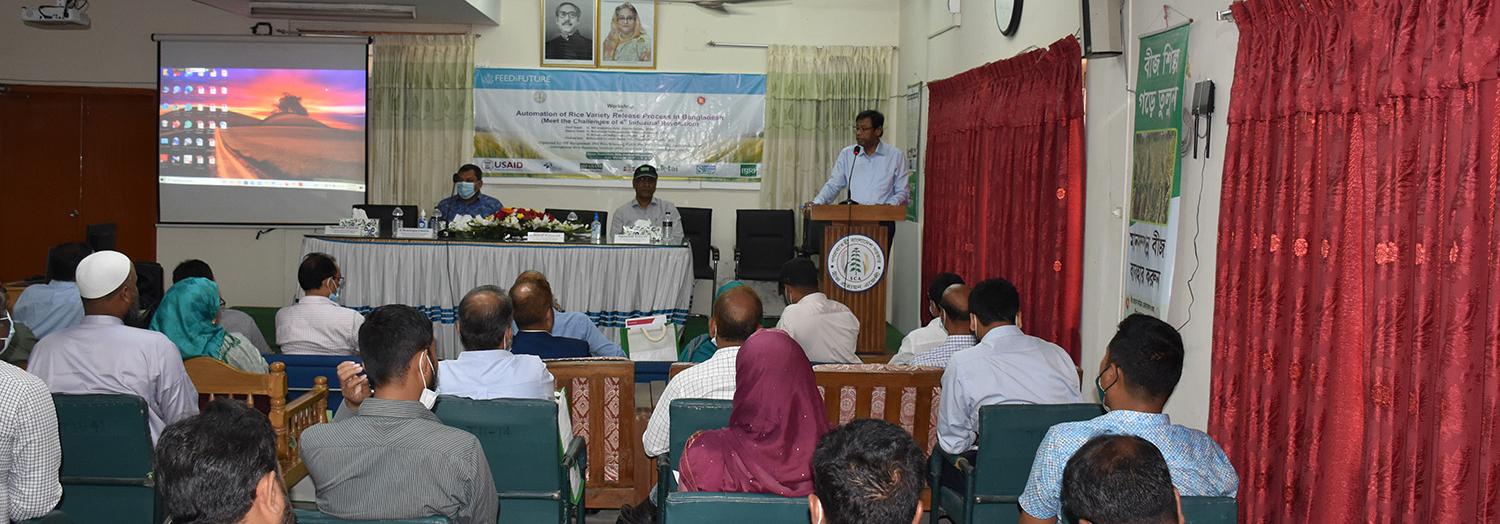
To help reduce the cost of seeds, researchers suggested automating the rice variety release process in the workshop conducted by the International Rice Research Institute (IRRI) Bangladesh and the Seed Certification Agency (SCA) under the USAID Funded FtF Bangladesh IRRI Rice Breeding Public Private Partnership Platform Activity on 30 March 2022 in Gazipur, Bangladesh.
While Bangladesh has systems in place for rice seed variety release, quality seeds are still expensive. Farmers stand in the last kilometer of quality rice seed system and mostly depend on the sources of rice seeds from public and private sectors. At the same time, the private sector faces challenges on registering rice seed varieties such as the lengthy process, complexities of the system, and the uncompetitive cost of doing business. From 2014 to 2019, the contribution of the private sector in rice seed release is 10.81% to 10.84%, the growth is almost stagnant due to these limitations.
To address these challenges, Chief of Party of IRRI Bangladesh Dr. Sirajul Islam talked about the initiatives they were taking to facilitate the efficient delivery of services of the rice seed system.
Krishibid Amina Begum of the Seed Certification Agency discussed how SCA facilitates public and private sectors’ timely access to quality seeds.
“Bangladesh is the third highest paddy (non-milled rice) producing country in the world, next only to China and India. Over the years, Bangladesh has developed modern and high-yielding rice varieties, fast-tracked the adoption of high-yielding rice varieties by farmers, and the rapid expansion of irrigation infrastructure,” Dr. Sirajul Islam said.
“Automating the seed certification system will build upon these successes. The automation seeks to consider the best practices that reduce time, cost, and complexities of rice variety registration,” he added.
Dr. Mohammad Rafiqul Islam, Project…
